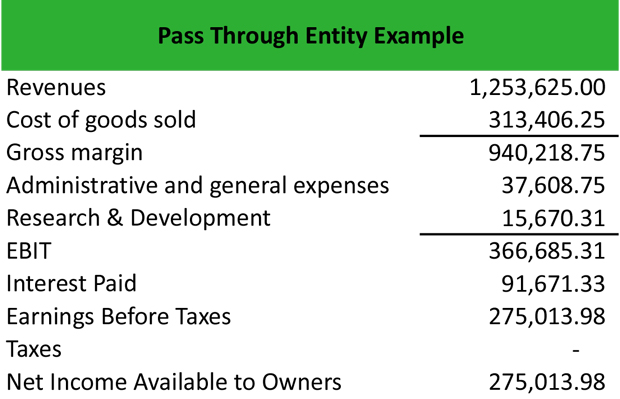Definition: A pass-through entity is a business structure that eliminates the burden of double taxation by allowing the income to flow through to the owners. These entities do not pay income taxes, like a corporation, but they allocate the income among the business owners. Thus, the taxes are levied on an individual basis.
What Does Pass-Through Entity Mean?
What is the definition of pass through entity? The income of a pass-through entity is the income of each of the owners of the entity. Depending on the state that the entity operates in and the relevant tax regulations, a pass-through entity may avoid dividendtaxes as well as double taxation as the owners can be taxed as individuals on the revenue they share of the business. The pass-through entity is also known as a flow-through entity because the taxation flows through. On the downside, a pass-through entity may face restrictions and regulations that corporations avoid.
Let’s look at an example.
Example
Company ABC is a pass-through entity owned by Brian and Mary. Brian owns 65% of the entity, and Mary owns 35%. The IRS sends both a Schedule K-1 form so that they report their portion of the company’s income.
The company’s income statement is the following:

Brian files 275,013.98 x 65% = 178,759.09, and Mary files 275,013.98 x 35% = 96,254.89. Alternatively, the tax burden could be 25% for each owner, regardless of the level of net income. In that case, they would both pay an equal amount of 275,013.98 x 25% = 68,753.50
The downside on taxation in a pass-through entity is that business owners are getting taxed on income they might not actually receive. For example, if the company does not distribute its profits, then the taxes are on undistributed income.
Summary Definition
Define Pass-Through Entities: Pass through entity means a company that passes its income on to its owners and doesn’t pay taxes on the income at the entity level.


